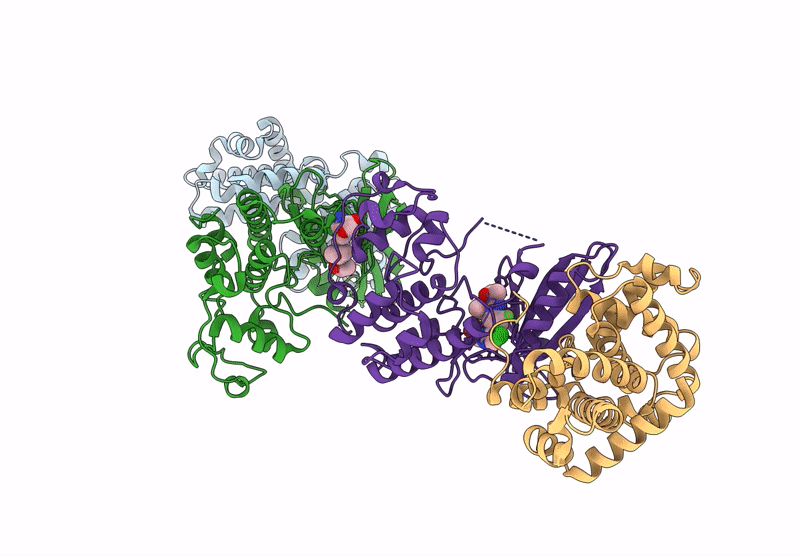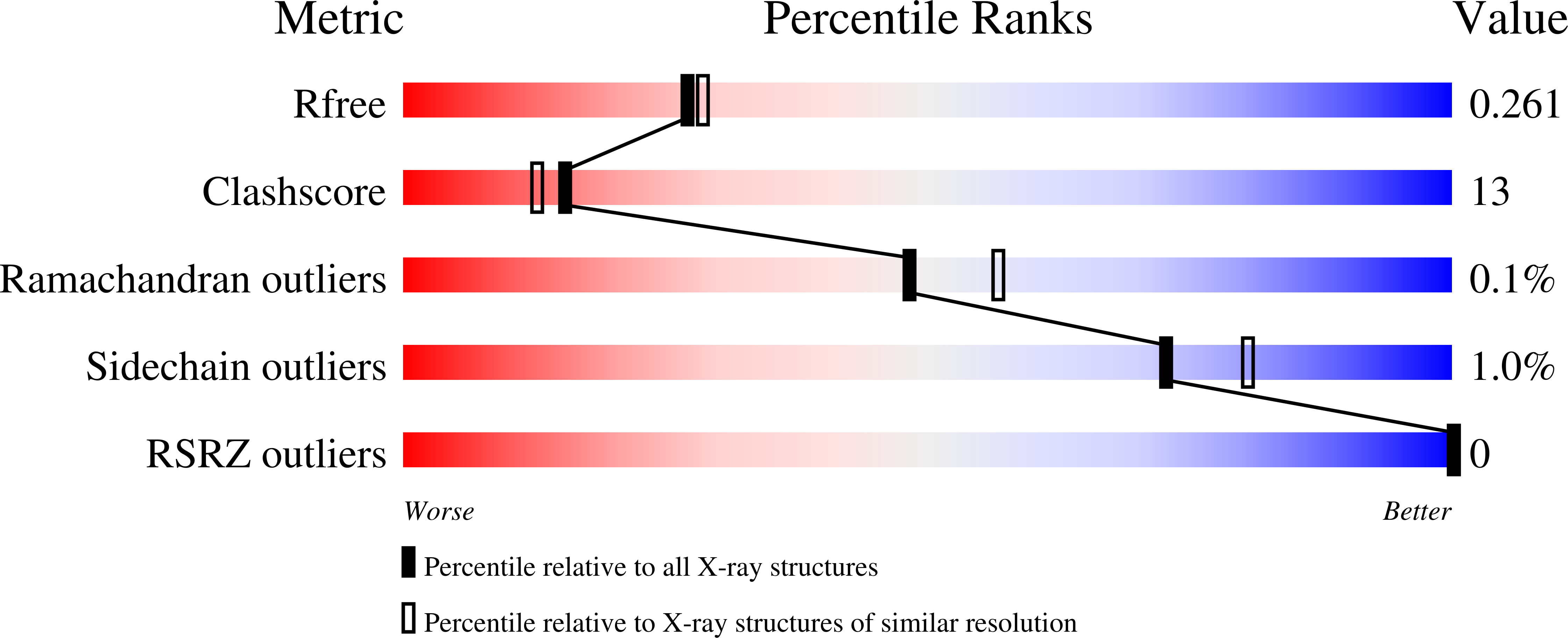
Deposition Date
2024-07-24
Release Date
2025-03-26
Last Version Date
2025-03-26
Entry Detail
PDB ID:
9CSK
Keywords:
Title:
Crystal structure of CDK4 cyclin D1 in complex with atirmociclib
Biological Source:
Source Organism(s):
Homo sapiens (Taxon ID: 9606)
Expression System(s):
Method Details:
Experimental Method:
Resolution:
2.25 Å
R-Value Free:
0.27
R-Value Work:
0.22
R-Value Observed:
0.22
Space Group:
P 1 21 1


